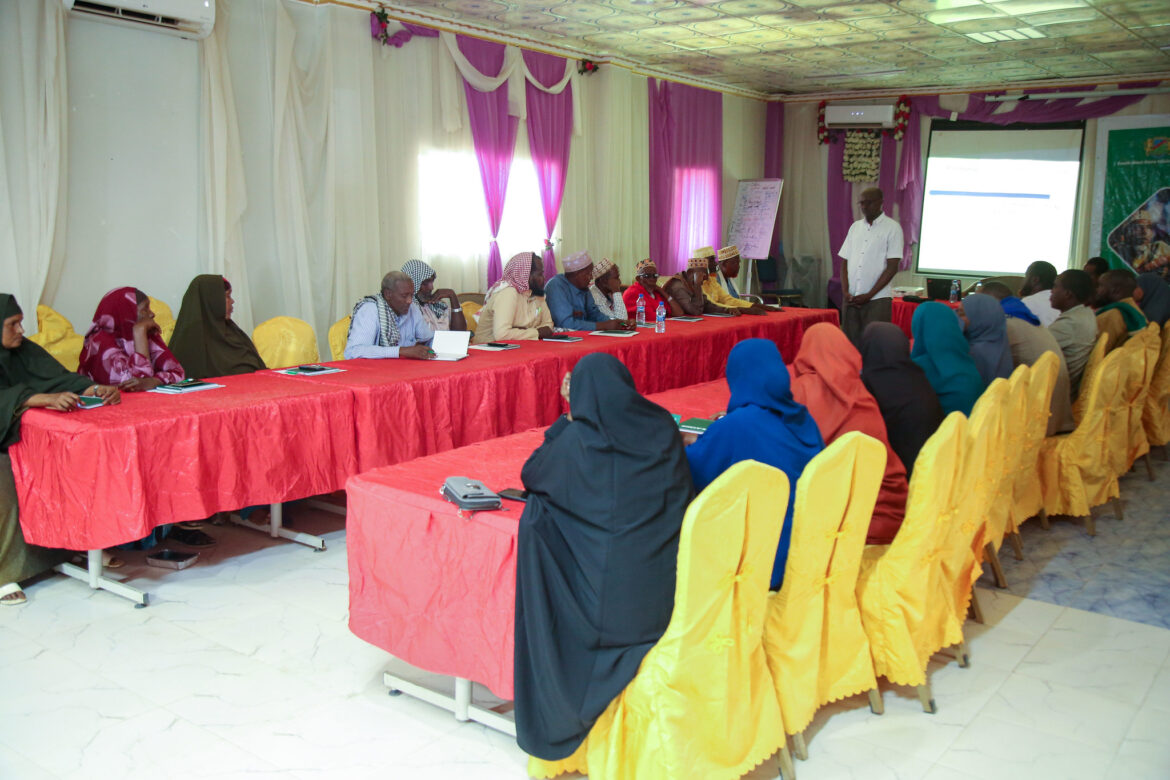Baidoa, 18 November 2022—To help communities in Somalia amicably resolve their differences, the African Union Transition Mission in Somalia (ATMIS) in collaboration with the Southwest State Ministry of Justice conducted a workshop on methods of Alternative Dispute Resolution (ADR).
Alternative Dispute Resolution (ADR) is one of several approaches to improve access to justice in general. It comprises processes in which parties settle disputes with the help of third-party mediators or arbitrators, often out of court.
The training was attended by 25 participants, nine of whom were female, drawn from traditional and religious leaders, youth and women representatives as well as political leaders from communities resident in Southwest State.
“Our support to Southwest State’s Ministry of Justice, the traditional leaders and others is to enhance their capacity on understanding traditional customary law and to see how we can support them in that regard. We need to have a platform to exchange information and experiences among the traditional leaders, women leaders and religious leaders on how to resolve disputes and cases in Southwest State,” said ATMIS Civilian Sector Team Coordinator, Fadil Karar.
During the workshop, the members received training on the techniques for settling disputes without litigation, such as arbitration, mediation and negotiation. They were also taken through basic human rights protocols and gender justice norms.
“This was very effective and we had very good feedback from the participants,” Karar added. “Our collaboration with the Ministry of Justice to support this model will encourage the African Union to continue supporting such training to ensure justice and order in resolving disputes and conflicts among community members.”
Present at the training as an observer was Abdirazak Nor Hassan, the Director General of the Southwest Ministry of Justice, who said that ADR was important as a complement to the formal court processes.
“Out of court resolutions are widely preferred by our people and the Ministry of Justice has centers where the traditional elders hear cases and offer mediation and resolution. This training, supported by ATMIS, is important in that it builds the capacity of those that sit in arbitration, mediation and negotiation of disputes. We appreciate this support from ATMIS,” the Director General said.
Adan Ali Yarrow, one of the traditional elders at the workshop, said some of the disputes they are asked to settle are complex and such training is critical in enhancing their capacity and skills.
“Indeed, this training will boost our skills at resolving community disputes. People look up to us to be fair and impartial as we mediate disputes and having the skills to do so only helps in ensuring that we are credible, believed and trusted by community members,” Yarrow said.







